Nora Quick's Blog: Nora Quick Book Updates, page 2
June 22, 2015
106-1C: Liars, Tycoons, and Bars, Oh My! (Dorothy Hits the City)
You’re at the point of marketing where things get tricky. You may be Dread Pirate Roberts, and you got the girl, but now we enter the Fire Swamp. We have fire spouts, lightning sand, ROUSes, and an evil prince waiting for you.

Let’s get down to honest brass tacks now. In a perfect world you will have blog tours, contests, and giveaways planned before you publish. And almost every writing website on earth will tout these. Though when used effectively they are the BEST promotional marketing strategies, with your first novel IT MAY NOT BE WORTH IT.
Let’s define these quickly, then we’ll cover what you need to make it successful, recap why this could be a problem for a first-time author, cover if/when it CAN work, and then get into the nitty-gritty of how to do it.
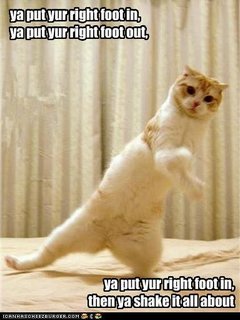
Blog tours are where guests write blog posts on another blog. When you are hosting, you may line up a period of time where every day, once a week, or somewhere in between, other bloggers are posting on your blog. You’ll both promote it in the hopes of both of you gaining more followers. When you’re touring you will arrange to write a blog post for several other blogs, and again both of you market it and you hope to get their followers to follow you, and they hope to get your followers to follow them.
Contests are pretty self explanatory. You choose a prize, such as an autographed copy of a book, and there is a challenge potential winners must meet. They may have to come up with a funny caption for a picture, or write a three line story, for example. The actual strategy of a contest is to gain more social media followers and buzz and promote the author’s brand, not necessarily selling more copies of your book. Contests tend to be for prizes better than a free copy of a book (an autographed copy, advance copy of a graphic novel format, a tie-in vacation).
Giveaways are where a prize is chosen, but people must simply enter by adding their name to a list and a winner is chosen at random. It’s less time-consuming than a contest, prizes tend to be small (free copies of the book), and is designed to promote social media buzz and sell more copies.
Before deciding if any of these are right for you, you need to know what you must have to in place to make each work.
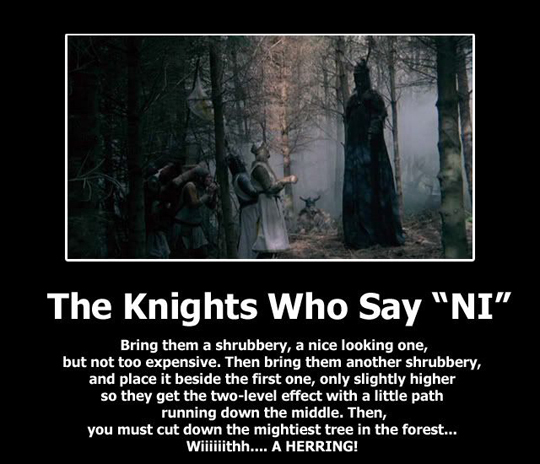
Blog tours are the easiest. When you first began your journey, you built a website, fanbase, and networking contacts within writing groups ( http://noraquick.yolasite.com/the-qui...- ). And to do these steps you need those things in place. Do you have at least fifty regular readers of your blog? Do you have at least five friends with at least fifty regular readers of their blogs? Do you find it easy to write blogs that are interesting, informative, or funny? Are you the kind of person who can commit to something and follow through? If you are, a blog tour may be right for you.
For contests…it’s as simple as this: do you have a large fanbase, enough that if your book was available for pre-order it sold well? Do you have enough followers on social media that you can reach one thousand people or more? The big questions is, and this applies more to legacy authors with publishing houses behind them than indie authors, does your agent or publisher feel you need a publicist? If you have pass those litmus tests, and you have something unique to offer, a contest may be right for you. The very short of it is that if you’re at the point where you want to begin discussing a book tour with your publisher or agent, that is the time to have a contest. For everyone else, this is not a good idea.
A giveaway works for indie and legacy authors. There is just one requirement: on social media, can you reach five hundred interested people? If so, a one-off giveaway of one prize may work. But in reality a giveaway should have three prizes, and for every prize you have, you need five hundred followers on social media, so realistically you’ll want to offer three prizes and to do so you must have fifteen hundred followers.
By now you can see where this may be a problem for first-time authors. Unless your first book is a runaway best-seller, ignore contests. Giveaways can work for first-time authors, but you might want to time it to actually promote your second book, the giveaway being your first novel, and above all you must be popular on social media.

Blog tours are probably the best strategy for first-time authors. However, there is a caveat: blogging has become serious business, and to have a popular blog it’s a part-time job at the very least. Writing is a part-time job (ha! It’s clearly a full-time job), and if you like having a roof over your head and food on the table you need to have a full time job, couch surf with your parents, be independently wealthy, or be married to a hard worker who is fine with a sloppy house. So this can be tricky and may have to wait again until you’re nearing your second book. However if you have an interesting subject and gained followers easy, and that charm extends into making friends with other successful bloggers, this can work for you.
Starting there, how do you do a blog tour? Remember this above all else: QUID PRO QUO, tit for tat, I do for you; you do for me. When you have that attitude, most other bloggers will be happy to host you, or tour on your blog.
Behind the scenes get it set up. Contact and secure other bloggers. Pick a month, maybe one month away or more in the future. Aim for touring on four blogs each Friday (or whatever day you like, one piece a week) and having those bloggers write one piece for you over that that month, appearing on your blog on the same day you appear on theirs. Hammer out the subjects in advance, this is important.
The reason why you want your first blog tour to be spaced out over a month is because you have to market lead-ups to each blog. Whenever you do anything for the first time, do to slowly and carefully. Once it becomes easier, you can do it faster.
Once you have your schedule, in the week leading up to your blog exchange, you want to link to the other blogger, mention them, talk about similar interests, cross promote one another, and introduce your topic.
Try for a schedule like this:
Monday: Post a blog about a subject both you and your blogger friend are interested in. Mention them and link their name to their website, and mention a blog post they did related to this one.
Tuesday: Know what the top interest of your upcoming host blogger’s blog is (e.g. highly critical reviews of Oprah Book Club selections, literary analysis of graphic novels, or using popular memes to make a 21st century choose your own adventure book) and write your own blog on the subject. Try to make it as interactive as possible to gain comments.
Wednesday: Follow up your prior post with a related subject that the other blogger covered. Quote the blogger and link to them.
Thursday: Know what your Friday guest blog will be on the other blogger’s site. Have it written already, put it aside. Today, write an introduction to it, perhaps even a Part One where the guest blog will be Part Two.
Friday: Have your blogger friend post your guest blog and link back. All this week they should have been doing the same.
Now, just repeat that for a solid month and you’ll have some new blog followers. Make sure you have links to your book visible in your blog or on your landing page, and be sure there is preview available.
This can be done at any time as long as you have the blogging friends and followers you need. Treat it as fun, it’s meant to be, and even if you don’t sell any extra copies of your works you’re cementing a solid working aspect to a friendship, and as trite as it sounds, remember the childhood song Daisy Scouts are so fond of: “Make new friends, but the keep the old, one is silver and the other’s gold.”
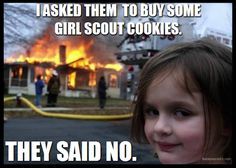 True Role Models
True Role Models To do a contest, remember that you must have something extra of value: you MUST have a paperback or hardback edition to autograph, or a sundry (a related item like t-shirts, mugs, etc). You must have many social media followers (we’re talking in the over two thousand category). And you must have either a lot of time, or a support system/assistant.
First, figure out an easy-enough-to-be-popular challenge such as captioning a funny picture, or answering a quiz about your book. You’ll need thirty days to plan and thirty days to run. In planning, that is when you collect all this, figure out the rules, and prepare press releases, social media posts, and website updates, as well as learn all the laws.
One week before the run time make the announcement, start promotion with graphics and hints. Link to your website every time! Figure out who will help monitor the contest and judge as your assistant or your second personality who comes out at night while you sleep (this is where a publicist can really help).
Beginning the run time, make sure you or your helper moderates and keeps trolls out, this will be very important. Every week try to pick a small group of the best responses, list them, set them aside.
Now, over a one month run, you can structure it like this:
Weeks One-Two – open responsesWeek Three – semi-finalsWeek Four – finals
For two weeks take all responses, set those you like aside. Next, for one week, allow general voting on the best, and narrow it down to five - ten. For the final week allow voting on those but ask the finalists do one additional task and let the general population judge that, or turn to your blog tour friends and let them judge the final round.
Alternately, over four weeks you can give away four items, and have four one week contests. Generally, the less well-known you are, the better this option is. The first option is fairly ironic: it works best when you’re a popular author, but when you’re a popular author it doesn’t help you sell any additional books. It does heavily promote your brand.
Doing the four small one week contests works better to sell your book AND promote your brand. You also have an opportunity here to sell copies of your book: wait until your second book has a publication date and is ready for a promo. Challenge your Twitter followers to leave a one word review and create a hashtag with your first novel’s title, and give away to randomly selected winners advance copies of your second book. Once your hashtag gets popular enough to be listed, it will gain interest in your first novel, particularly if the one-word reviews are positive.
Giveaways are much easier for newer authors with just one book out and are very simple. Again you need followers, but this time you can simply give away free eBook copies. It need not be anything special. Give yourself sixty days to prepare and run for just two weeks here.
You can create a social media post or a blog post (and promote it on social media). Invite comments and pick a winner at random. It’s as easy as that. You need followers, however, because frankly if only three people respond it is going to look sad, and only make you feel sad.
All of these marketing tools are designed to help you once you’ve already got the ball rolling. Blog tours are going to be the most effective.

You might be asking how this translate into book sales. The answer is, not directly (in general). But if you have a solid product (a good book, a good blog) readers will come. Keep putting out good material and they will buy.
In our next lesson we’ll talk about personal appearances: interviews in print, radio, and television, book tours, and appearing at conferences and conventions as a presenter or panel member. You only get to that level with solid sales and a strong brand, so let’s get the brand in place now to help drive sales and get you set up for the next evolution.
This is secondary or indirect marketing. It is not direct marketing (promoting the book) but promotes your brand: you, your website, and your book(s). Once you have a book out, you need to solidify and push your brand. This is the twenty-first century and this is how it’s going to be done from now on. You don’t just sell your book, you sell yourself, and you sell a dogma- George RR Martin has attracted as many readers due to praise for his writing of female characters (feminism would be the dogma) as his convoluted and engrossing plots.
Work hard, and keep to it. It’s worth trying any of these, but you may need to work hard to build a bigger fanbase. Keep on that free writing, enter contests, join writer’s groups and network. Above all, never let your karma run over your dogma.
Published on June 22, 2015 13:39
June 13, 2015
106-1B: How To Recreate DMV Hell In Your Own Home!
Ah, the land of reviews. Now that your book is either freshly out or about to come out, it’s time to get reviews. We will cover the ethical and unethical ways of doing this, but the unethical focus will be ethical-unethical. It will make sense once we get going. First we must learn what the rules are, the right way to follow them, what constitutes breaking them, and then the ethical-unethical bending of the rules.

Starts like this...
First off, if you have a publisher producing your book, they will contact reviewers. On average for a first-time author, for every 75 reviewers contacted only 1 will actually review it. So for you Indie authors, be prepared to die of exhaustion, it is a numbers game. And even if you have a publisher, you should know who they are contacting and be prepared to contact your own. However, for those of you with an agent, always check with your agent to see if they have a list of reviewers they have established relationships with, that may circumvent a large chunk of this work.
One last note before we get into the steps of getting ethical and effective reviews: be prepared for the worst, hope for the best. This is your baby, but a reviewer may shit all over it. Often, if it is due to a technical issue that is your fault it will be clearly noted. Sweeping negative statements tend to be opinion. I’d say about 70% of all humans are assholes, and this goes for reviewers as well, and some will be mean just to be mean, or because they skipped breakfast that morning and their dog shit on the carpet. Be prepared to thicken your skin.
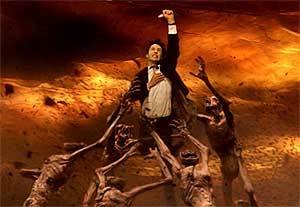 Feels like this...
Feels like this...
There are two kinds of ethical reviews: effective and ineffective. Effective are established magazine critics, established website critics, top Amazon reviewers, and award-winning blogger/critics. Ethical but ineffective are friends reviewing on a sales website who did actually read the entire book, and paid “honest reviews” again on product sites like Amazon- ethical, but almost never effective.
To find the effective critics (mostly for you self-published writers) you need to just do a simple Google search. Search for critics that specialize in your genre, visit their sites, read their magazines, get familiar with their tastes. Make a list of the ones you think would most enjoy your work (if, for example, you wrote a comedic-sci-fi don’t choose the reviewer who loathes Douglas Adams with a passion). Try to stick to those with a history, with lots of a page views, with wide circulation and an established reputation.
Once you have that list, now try a Google search for the bloggers who review. Make absolute certain before choosing a blogger that their blog is linked to by reputable sites and/or publishers, that it is well-written, and that there are large numbers of page views.
The last names to add to your list are the Top Reviewers of Amazon. Start by looking for the best-selling books in your genre. There you will spot usually as the first one or two reviewers, a top reviewer. Look for the ones you know enjoy your genre, click on their names, and see which ones provide contact info and state or allude that they are open to review requests. Add them to your list.
 Looks like this.
Looks like this.
Once you have a list (try to make it as large as possible, aim for 100!) here is where you might consider ritual suicide from the coming workload: DO NOT USE A FORM LETTER. NOPE! NO! NEVER! Do you like getting form letters? Do you like getting bulk emails? NO! We all like something personalized. So do not EVER copy & past, or email more than one reviewer at a time.
However, you can have a style, but it must be tailored to the individual. A style is a plan (such as compliment, expound, query) but the specifics must be different for each. Here is an example:
Dear A,
I have greatly enjoyed your blog. I intended to contact you and lost myself in your humorous and insightful book reviews. Your reviews are always very deep, and the theories you represent remind me of Pajiba, albeit with a greater dose of intelligence. I particularly enjoyed your review of D.M.’s Thief Of Yesteryear, and your theory on Sebastien’s motivations blew my mind.
I am so happy that your blog is easily searchable and you have become my go-to reviewer. I know your work is very demanding and you are very busy, but I was wondering if you might share with me what brought you into such a deep, psychologically-oriented review style?
Yours most sincerely,Me
That is a first letter format. It has their name, it shows you had a reason to contact them (that is not stated…that will incite curiosity on their part), it has a compliment on their medium (compliment), it has real examples that are complimented (expound), and it ends with a question (query). What does it NOT have? NO REVIEW REQUEST. That will come later.
This is the best approach for the bloggers, Amazon Top Reviewers, and the critics who are open. If someone has a submission page and form, that is what they prefer. Simply follow their directions and submit. When they don’t have a form, use this approach: it’s sales 101.
STEP ONE: Make a list of reviewers of those accepting submissions or possibly accepting them, who enjoy your genre
STEP TWO: Find something in their body of work you may compliment honestly
STEP THREE: compose a letter and offer lavish and honest praise. End with a question NOT RELATED TO YOUR REVIEW that will encourage them to reply.
STEP FOUR: They will reply, and likely ask you a question or offer more information. Reply and keep the conversation going. When it is appropriate to do so mention you are a writer.
STEP FIVE: Let the other party either ask if you wish them to review your work, or ask what your original goal in contacting them was.
STEP SIX: Give the quick description of you book, word count, and genre and ask if they would be interested in reviewing it. Be exceedingly humble and gracious.
STEP SEVEN: Be prepared for them to say no, but if they say yes send them the exact format/documents they request. If they say no, send them a thank you, and if you have struck up a friendship keep it going. They might say yes to your next book.
And there you have it, the steps for contacting someone out of the blue. It also helps if you take the time to know what they want. And what do they want? Page hits, links backs, being quoted in large-scale publications. Can you offer any of this? Does your site get many hits? Do you have a large publisher with a large reach? Do you have a huge social media following? If you have any of this, at STEP SIX you want to bring this up. Frame it in terms of you would be doing them a favor.
 Remember This But Not Until Step Six!
Remember This But Not Until Step Six!
How would you feel if someone struck up a conversation about your business, hobby, or passion, listened to you, asked good questions, and then offered an opportunity that would benefit you as much as them? You would be happy to at least discuss it. Remember to always put yourself in the reviewer’s shoes and think about what they want, what demands are on their time.
Remember, most of those in magazines, or anything old-school, are going to have a form to fill out, and will give preference to publishers over indie authors. So keep it polite, short, and to the point following their directions, tat’s what they want. Beware those who specialize in Indie Authors, it’s a scam 100% of the time, that’s not where the money is in advertising, so they get the money….b y charging the Indie Authors.
Now for the ineffective but ethical…you have the paid reviewers who are contractually obligated to be honest. Think of reviews you’ve seen on Amazon where someone says “I WAS GIVEN A FREE COPY OF THIS BOOK IN EXCHANGE FOR AN HONEST REVIEW.” Now, it’s never free. Reviewers expect a free copy AND $5-$60 once their review is posted on Amazon (typically). I won’t even link to them, it’s a bad thing for Indie authors, and Legacy authors don’t need to worry about it. If you’re desperate and have money you can go this route, but it is frankly a waste of time and usually the books you see with these types of reviews are put out by small boutique publishers.
 Let me save you time: YES THEY ARE when they are "honest reviews"
Let me save you time: YES THEY ARE when they are "honest reviews"
There is an alternative, but here we get into the ethical “unethical” method: having friends and family honestly review your work. What this means is you give someone you know well, and know is interested in your book, a free copy and ask them to leave a honest review as thanks. Typically it is considered unethical to enlist friends and family, but here we are making it ethical by insisting it be a 100% true, honest, unaffected review. It’s bending the rules, not breaking them. Just make it clear to your family and friend they are not to pull any punches.
Yet that is another sales trick, I admit: the more you insist they must be honest, that you are certain there must be flaws that they must discuss, the more they will naturally try to compliment you.
Remember how I said 70% of people are assholes? Well, all of us naturally want to argue with other people, that’s a large source of this assholery. This is a trick of sales, again, where you swiftly lay it on thick apologizing for an honest mistake. People naturally want to argue with you, which means they pull to absolve your sins. A good part of this is because people want to stop hearing your lamentations, so they laud you. So use this for good or evil, it works. The next time you try to buy a large ticket item like a car, look for a mistake or error, bring it up, and watch the salesman use this trick on you.
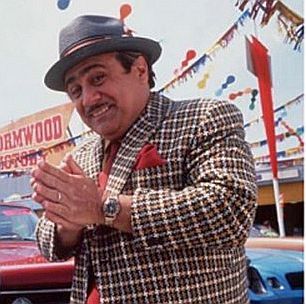 No, a GOOD SALESMAN, not this guy!
No, a GOOD SALESMAN, not this guy!
Remember, for every 75 of all these kinds of reviewers you contact, you will get 1 review. So push for 100 critics, Top Reviewers, and review bloggers, and then try to get as close to 20 friends and family. You might end up with 2 or even 3, and hopefully that is enough to get readers interested and leaving their own reviews on the various sales websites.
You should add a note at the end of your book (for self-published authors) asking for reviews, or hope that people who buy your legacy published book leave a review, but be prepared: they largely don’t.
I have sold about a two thousand books in five years, and the only reviews I have are from family/friends who write honest reviews. Why? Because humans are inherently lazy, selfish, and inconsiderate. ALL OF US, me included. I write this with the shame of knowing I have probably read over a thousand books since 2005, and I have probably written maybe 100 reviews. Even I have a 10% rate and though I am working to change that, it seems to be a good number. Like most people, that 10% are the books I love, love, love, and the books I hate so much I want to find the author and punch them in the nose. So as you go through the process of getting reviews join me in trying to review the ones that rate 2-4 on a 1-5 scale.
The review game is stacked against you, at your first one or two novels. Pros accept your request for a review about one time out of every seventy-five. And apparently it is zero out of two thousand for the world at large. Hell, even with friends/family I only got two out of fifteen.
Start this process as soon as possible (but only when you have a finished product and publishing date). However, remember that it is to your advantage to have something to offer (lots of blog hits, a large publishing house behind you, or a social media following of large, active numbers). This means you may want to wait until you’ve gone onto blog tours (the next step, and only if you choose to do it). Still remember, most reviewers will NOT be open to reviewing your work. For those that are…be polite, be complimentary, and be patient with them, and most of all, be aware that you are imposing, and be humble, lavish in praise, and patient.
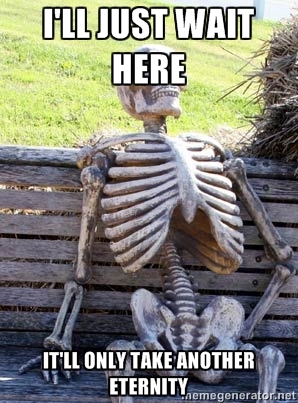
In our next lesson we come back to marketing where you have total control: Blog Tours, Contests, and Giveaways. Until then, happy letter writing, and best of luck garnering reviews!

Starts like this...
First off, if you have a publisher producing your book, they will contact reviewers. On average for a first-time author, for every 75 reviewers contacted only 1 will actually review it. So for you Indie authors, be prepared to die of exhaustion, it is a numbers game. And even if you have a publisher, you should know who they are contacting and be prepared to contact your own. However, for those of you with an agent, always check with your agent to see if they have a list of reviewers they have established relationships with, that may circumvent a large chunk of this work.
One last note before we get into the steps of getting ethical and effective reviews: be prepared for the worst, hope for the best. This is your baby, but a reviewer may shit all over it. Often, if it is due to a technical issue that is your fault it will be clearly noted. Sweeping negative statements tend to be opinion. I’d say about 70% of all humans are assholes, and this goes for reviewers as well, and some will be mean just to be mean, or because they skipped breakfast that morning and their dog shit on the carpet. Be prepared to thicken your skin.
 Feels like this...
Feels like this...There are two kinds of ethical reviews: effective and ineffective. Effective are established magazine critics, established website critics, top Amazon reviewers, and award-winning blogger/critics. Ethical but ineffective are friends reviewing on a sales website who did actually read the entire book, and paid “honest reviews” again on product sites like Amazon- ethical, but almost never effective.
To find the effective critics (mostly for you self-published writers) you need to just do a simple Google search. Search for critics that specialize in your genre, visit their sites, read their magazines, get familiar with their tastes. Make a list of the ones you think would most enjoy your work (if, for example, you wrote a comedic-sci-fi don’t choose the reviewer who loathes Douglas Adams with a passion). Try to stick to those with a history, with lots of a page views, with wide circulation and an established reputation.
Once you have that list, now try a Google search for the bloggers who review. Make absolute certain before choosing a blogger that their blog is linked to by reputable sites and/or publishers, that it is well-written, and that there are large numbers of page views.
The last names to add to your list are the Top Reviewers of Amazon. Start by looking for the best-selling books in your genre. There you will spot usually as the first one or two reviewers, a top reviewer. Look for the ones you know enjoy your genre, click on their names, and see which ones provide contact info and state or allude that they are open to review requests. Add them to your list.
 Looks like this.
Looks like this.Once you have a list (try to make it as large as possible, aim for 100!) here is where you might consider ritual suicide from the coming workload: DO NOT USE A FORM LETTER. NOPE! NO! NEVER! Do you like getting form letters? Do you like getting bulk emails? NO! We all like something personalized. So do not EVER copy & past, or email more than one reviewer at a time.
However, you can have a style, but it must be tailored to the individual. A style is a plan (such as compliment, expound, query) but the specifics must be different for each. Here is an example:
Dear A,
I have greatly enjoyed your blog. I intended to contact you and lost myself in your humorous and insightful book reviews. Your reviews are always very deep, and the theories you represent remind me of Pajiba, albeit with a greater dose of intelligence. I particularly enjoyed your review of D.M.’s Thief Of Yesteryear, and your theory on Sebastien’s motivations blew my mind.
I am so happy that your blog is easily searchable and you have become my go-to reviewer. I know your work is very demanding and you are very busy, but I was wondering if you might share with me what brought you into such a deep, psychologically-oriented review style?
Yours most sincerely,Me
That is a first letter format. It has their name, it shows you had a reason to contact them (that is not stated…that will incite curiosity on their part), it has a compliment on their medium (compliment), it has real examples that are complimented (expound), and it ends with a question (query). What does it NOT have? NO REVIEW REQUEST. That will come later.
This is the best approach for the bloggers, Amazon Top Reviewers, and the critics who are open. If someone has a submission page and form, that is what they prefer. Simply follow their directions and submit. When they don’t have a form, use this approach: it’s sales 101.
STEP ONE: Make a list of reviewers of those accepting submissions or possibly accepting them, who enjoy your genre
STEP TWO: Find something in their body of work you may compliment honestly
STEP THREE: compose a letter and offer lavish and honest praise. End with a question NOT RELATED TO YOUR REVIEW that will encourage them to reply.
STEP FOUR: They will reply, and likely ask you a question or offer more information. Reply and keep the conversation going. When it is appropriate to do so mention you are a writer.
STEP FIVE: Let the other party either ask if you wish them to review your work, or ask what your original goal in contacting them was.
STEP SIX: Give the quick description of you book, word count, and genre and ask if they would be interested in reviewing it. Be exceedingly humble and gracious.
STEP SEVEN: Be prepared for them to say no, but if they say yes send them the exact format/documents they request. If they say no, send them a thank you, and if you have struck up a friendship keep it going. They might say yes to your next book.
And there you have it, the steps for contacting someone out of the blue. It also helps if you take the time to know what they want. And what do they want? Page hits, links backs, being quoted in large-scale publications. Can you offer any of this? Does your site get many hits? Do you have a large publisher with a large reach? Do you have a huge social media following? If you have any of this, at STEP SIX you want to bring this up. Frame it in terms of you would be doing them a favor.
 Remember This But Not Until Step Six!
Remember This But Not Until Step Six!How would you feel if someone struck up a conversation about your business, hobby, or passion, listened to you, asked good questions, and then offered an opportunity that would benefit you as much as them? You would be happy to at least discuss it. Remember to always put yourself in the reviewer’s shoes and think about what they want, what demands are on their time.
Remember, most of those in magazines, or anything old-school, are going to have a form to fill out, and will give preference to publishers over indie authors. So keep it polite, short, and to the point following their directions, tat’s what they want. Beware those who specialize in Indie Authors, it’s a scam 100% of the time, that’s not where the money is in advertising, so they get the money….b y charging the Indie Authors.
Now for the ineffective but ethical…you have the paid reviewers who are contractually obligated to be honest. Think of reviews you’ve seen on Amazon where someone says “I WAS GIVEN A FREE COPY OF THIS BOOK IN EXCHANGE FOR AN HONEST REVIEW.” Now, it’s never free. Reviewers expect a free copy AND $5-$60 once their review is posted on Amazon (typically). I won’t even link to them, it’s a bad thing for Indie authors, and Legacy authors don’t need to worry about it. If you’re desperate and have money you can go this route, but it is frankly a waste of time and usually the books you see with these types of reviews are put out by small boutique publishers.
 Let me save you time: YES THEY ARE when they are "honest reviews"
Let me save you time: YES THEY ARE when they are "honest reviews"There is an alternative, but here we get into the ethical “unethical” method: having friends and family honestly review your work. What this means is you give someone you know well, and know is interested in your book, a free copy and ask them to leave a honest review as thanks. Typically it is considered unethical to enlist friends and family, but here we are making it ethical by insisting it be a 100% true, honest, unaffected review. It’s bending the rules, not breaking them. Just make it clear to your family and friend they are not to pull any punches.
Yet that is another sales trick, I admit: the more you insist they must be honest, that you are certain there must be flaws that they must discuss, the more they will naturally try to compliment you.
Remember how I said 70% of people are assholes? Well, all of us naturally want to argue with other people, that’s a large source of this assholery. This is a trick of sales, again, where you swiftly lay it on thick apologizing for an honest mistake. People naturally want to argue with you, which means they pull to absolve your sins. A good part of this is because people want to stop hearing your lamentations, so they laud you. So use this for good or evil, it works. The next time you try to buy a large ticket item like a car, look for a mistake or error, bring it up, and watch the salesman use this trick on you.
 No, a GOOD SALESMAN, not this guy!
No, a GOOD SALESMAN, not this guy!Remember, for every 75 of all these kinds of reviewers you contact, you will get 1 review. So push for 100 critics, Top Reviewers, and review bloggers, and then try to get as close to 20 friends and family. You might end up with 2 or even 3, and hopefully that is enough to get readers interested and leaving their own reviews on the various sales websites.
You should add a note at the end of your book (for self-published authors) asking for reviews, or hope that people who buy your legacy published book leave a review, but be prepared: they largely don’t.
I have sold about a two thousand books in five years, and the only reviews I have are from family/friends who write honest reviews. Why? Because humans are inherently lazy, selfish, and inconsiderate. ALL OF US, me included. I write this with the shame of knowing I have probably read over a thousand books since 2005, and I have probably written maybe 100 reviews. Even I have a 10% rate and though I am working to change that, it seems to be a good number. Like most people, that 10% are the books I love, love, love, and the books I hate so much I want to find the author and punch them in the nose. So as you go through the process of getting reviews join me in trying to review the ones that rate 2-4 on a 1-5 scale.
The review game is stacked against you, at your first one or two novels. Pros accept your request for a review about one time out of every seventy-five. And apparently it is zero out of two thousand for the world at large. Hell, even with friends/family I only got two out of fifteen.
Start this process as soon as possible (but only when you have a finished product and publishing date). However, remember that it is to your advantage to have something to offer (lots of blog hits, a large publishing house behind you, or a social media following of large, active numbers). This means you may want to wait until you’ve gone onto blog tours (the next step, and only if you choose to do it). Still remember, most reviewers will NOT be open to reviewing your work. For those that are…be polite, be complimentary, and be patient with them, and most of all, be aware that you are imposing, and be humble, lavish in praise, and patient.

In our next lesson we come back to marketing where you have total control: Blog Tours, Contests, and Giveaways. Until then, happy letter writing, and best of luck garnering reviews!
Published on June 13, 2015 11:10
May 26, 2015
Sittin' On the Dock of the Bay....
For the first time in my life since I began writing fiction at age four or five I am taking an intentional break from writing. I’ve taken long breaks before (when school/work got too heavy, or due to suffering depression I couldn’t focus) but those were times I had to. Now is by choice.
I freely admit I have suffered three bouts of depression in my life. The first time was when my mother was diagnosed with a terminal illness and quickly faded, dying just one year later. That was the worst depression I ever had. I couldn’t write a word, I stopped seeing my friends, and I reached a point called flat affect, where you literally have no emotions. I would rather die than ever experience that again, to me, if there is a Hell, that is what it must be like.
When I got to college shortly after I sought help, and within a year I was back to writing, though in college writing was off/on as I worked two or three jobs all through school and frankly was frequently exhausted.
Years later I got depressed again due to a divorce and losing my career in finance within days of one another, and since I was writing on Literotica, many of my fans remember the documentation of that. I sought help then and as soon as I recovered I was writing again.
Now, this depression is different. Rather than coming on the heels of a traumatic event, it was just the grinding stress of poverty, ill health, and a poor social life that drove me into it. I’m currently in therapy and with my therapist came to a decision: I will voluntarily commit to not writing anything new for six months.
And it’s killing me.
The problem is that much of the writing I have done in this depression has been some of my best. I’ve won awards and churned out epics with the highest ratings, plus the two books I published I am supremely proud of, as well as Secret Desires which is coming out in 2016.
Before I get to sharing with you why this is both Heaven and Hell, let me explain why I need this break. I treat writing as a full time job, and I need to devote more time to my day job. In the three months since this sabbatical began I’ve gone from being an independent contractor to starting a small business, and now I am growing it. I have more free time to meditate, focus on a schedule, pay attention to my health and fix medical issues, and lose weight. And, if all goes to plan, within a year my responsibilities in my new company will merely be the legal end and managers will run it, allowing me stable income and more free time to write.
The result of my new-found free time is fantastic. I have a plan, small goals that I am achieving, and I’m already feeling better. I am eating better, I’ve lost thirty pounds, I’m making new friends, and I shower daily and leave the house daily, things I struggle with when depressed. Sure, the despair and despondency still comes and goes and I’m not fixed yet, but I am getting there.
Now, with depression comes anxiety. For me it is mostly in writing. I’m a type-A personality to begin with, but the anxiety with writing was crippling. I wanted to write The Longest Midnight but since I first wrote in 2000 it’s undergone four radical changes, and trying to write it the changes kept coming. I’d get a decent way in, panic, and start over. And over. And over.
So I turned to the third Marly Jackson mystery. The original short story is the shortest and I had some good ideas to expand them. Only…once more I’d write the synopsis, get frustrated, trash it, and start over again. And again. And again.
Both my friend/life coach and therapist encouraged me to back away. Fix the anxiety first. In cognitive-behavioral therapy you have to either fix the cognition to improve a behavior (e.g. fix the anxiety before attempting to write) or fix the behavior to improve cognition (e.g. shower daily to feel more self-confident and happy).
So now I am focusing on fixing the anxiety. The problem with anxiety is irrational thinking. Now, I KNOW that I have published five books with a sixth coming out soon, so even if I flub one slightly it’s not the end of the world. The problem is, it fucking feels like the end of the world, because anxiety is not rational.
So now I am not writing. Oh, if I get the urge, I will work on Thief In the Night if the urges get too bad but I am trying to take a break from it all. The Heaven of it is that now the ideas can’t stop coming, and even with productivity halted, the creativity feels as if it is flourishing.
I have maybe three good ideas a day for books. I try to write them down to use for later. This is also somewhat the Hell. Inspiration has never been a problem, and I already calculate that if I brought every idea I’ve ever written down to fruition, I would need to live about two hundred years to get them all done.
Try not having a mild panic attack at that. I’m thirty-four, about to turn thirty-five. I am unmarried, never wanted kids…who will inherit my copyright? And my mother who died at forty-eight, who never published but also wrote, left me a box of her manuscripts which I wanted to edit and publish under her name with profits going to charity. When the fuck will I have time to do that?
So you can see why thinking about things like that induces anxiety. Of course there is also that morbid fear of aging. I’m getting to age where lines begin to appear on the face and grey hairs might come every day. So will I ever achieve what I want in my own life? Just how much can I write? How long will I live? When will I stop writing? What if I get Alzheimer’s or dementia? Argh! ANXIETY!
That Russian billionaire better hurry up with the immortality project, cripes, otherwise I have no time.
One reason why I didn’t think to do this before was that one thing always on my mind was that no matter what advice professional writers give, they always say some variation of Write every day. My therapist pointed out that was stupid. Part of writing is natural talent, yes, which doesn’t dry up or disappear. And hard work, the other component, is at-will.
So I am taking a break from writing but I still plan to blog. And when it comes time to edit Secret Desires that is an exemption. So until November of 2015 I am not writing, trying to ignore the worries. I wanted to share this with you because at some point you might need to take a break as well, and I have some advice to share, things working for me.
The first thing is I do have a plan. In October, I will sit down and come up with a writing plan for 2016. As part of my recovery from depression I plan to join some writers groups after abstaining for a few years. I have general goals: in 2016 I plan to finally get an agent and submit a book to legacy publishers as well as self-publish the third Marly Jackson. From there I have an outline of what to do in the next five years, and in October all I have to do is get more specific.
Part of why I was able to do this was I had already had Secret Desires accepted and scheduled to be published by Red Sage, so I still have a product coming out soon. And since it will be coming out early 2016 I have some downtime.
I do NOT recommend taking a break (if you have already been published/self-published) unless you have a product coming out, ready to go. A break is good, but you have to remember that readers who have enjoyed your work previously do expect it to continue. Don’t believe me? Look at all the furor over George R.R. Martin’s habit of taking five years to write a book. We know it is coming but the wait makes us homicidal.
Secondly, the best advice I can give you is have a good reason to take a break. Whatever it is, it must be important than writing. Family, health, financial survival, and school are about the only reasons good enough.
With that in mind, let me amend the advice all professional writers give others and make it my own: Write like it’s your job, because it is. But like any job you shouldn’t do it if you the run the risk or hurting yourself or family, or shortchanging school or making enough money to survive.
Yes, it’s complex, which is why writers like the sound-byte short version that is actually BS. Writing should be important in your life, but it can’t be the only thing. There’s a whole big world out there full of wonderful, terrible, and interesting things. It’s an adventure to be explored, and let’s hope that any writer’s break only makes their writing better.
But let’s not worry about it overmuch, shall we?
Published on May 26, 2015 12:46
May 22, 2015
Writing 106: 1-A Do the Hustle!
Welcome back both those who have pursued self-publishing and those who have an agent and possibly a publisher. This lesson will be divided between pre-marketing and marketing at release, focusing on social media. The next lesson will be on getting reviews/reviewers.
So, for those of you waiting that nearly two years on a publisher to put your book out and those of you in the process of self-publishing, let’s talk about a basic pre-marketing timeline. There is one golden, unbreakable rule:
DO NOT MARKET YOUR BOOK UNTIL YOU KNOW FOR CERTAIN IT IS COMING OUT.
 If you have nothing yet to sell, this is who your audience is
If you have nothing yet to sell, this is who your audience is
You don’t need to know the date. But you need to be in the finishing stages of editing if self-publishing, or have signed with a publisher for the legacy writers. This is when you know it will come out, albeit there is one caveat for the legacy crew. It has happened (to me personally and thousands of writers) that during the editing process with a publisher an unresolvable disagreement arises and your contract is canceled. To make sure you don’t market a book only to have this happen, WAIT UNTIL YOUR COVER IS FINISHED. For both indies and traditionals, this is the point of no return when you are certain your book is coming out.
Before you begin, there is a checklist of materials/information to have for pre-marketing:
• Title of your book• Genre it fits within (as specific as possible!)• Blurb • Short description• Cover• List of similar authors• List of similar books• A website (with blog!) • A Twitter account• A FaceBook account• A free writing website account (i.e. Literotica, etc)
With all that in hand you have the basics. A Google+ account is nice, but nobody’s on there so it is not necessary. LinkedIn and Goodreads accounts will be talked about soon, let’s ignore them for now.
In your first step, make a plan. Market in advance to gain interest, but not too far in advance that you can’t keep potential readers interested. For indie authors, I would suggest 2-3 months before the publishing date, for legacy I’d suggest 4-6 months (however, keep it sparse 3-6 months).
 Yeah, this is a lesson where you want to take notes
Yeah, this is a lesson where you want to take notes
For this plan, let’s focus on a 3 month campaign. In month 3 in the countdown you want to gain as wide an audience as possible. In month 2 you want to issue teasers. In month 1 you want to do direct hits. We’ll explain this all thoroughly in a breakdown.
In step two, you’re in month three and want to build up followers. Got that free writing account? Start posting frequently. Good, edited content, full stories! Keep your established fans interested and gain new ones. Create on your profile links to your social media and if possible add these links in the stories. Stay out of forums! I myself am having this issue currently: forums are filled with trolls who don’t read the free sites and don’t buy books and just get off on putting you down. STAY OUT OF FORUMS.
[image error]This is why
At the same time, you need to have a social media plan. You should already have this, but make sure you post regularly, with good content, pictures, and links. Pay close attention to what gets the most comments, likes, retweets, and shares. Over month 3 narrow your posts to those that attract the most interest.
Also at the same time, blog regularly. Do reviews or discussions of similar writers and similar books to yours. Make sure your blog posts’ metadata includes the names of bestselling authors and bestselling books, particularly giants of the genre and recent bestsellers. This will attract more readers to your blog.
All right, you’ve been working hard, gotten your followers as high as you can now, so we’re in month 2. It’s time to start issuing teasers! Start with releasing the cover on your website, blog, and social media. Change your profile pics on social media to include the cover whenever possible. Do this in week 1 of month 2. Name the publisher in these posts, and give a rough time frame (a year or a season/year).
In week 2 of month 2, start sharing the blurb. Again, on your website, blog, social media. Find ways to connect the blurb to the successful media posts that interest people most.
In Week 3 of month 2, share the short description. On your website and blog, only put up the short description at this time. Share what you can on social media. You can see so far the website/blog/social media are your targets, but for now we can expand. On your free writing site profile, include the short description in your bio.
Now we come to week 4, the last week (continue into week 5 in a longer month such as August). Now is the time to put the full description up on your website. Keep a special page for books where it goes, and change your front page to include the cover and title, linking it to the book page. Share the link to the description on social media, and highlight in your blog.
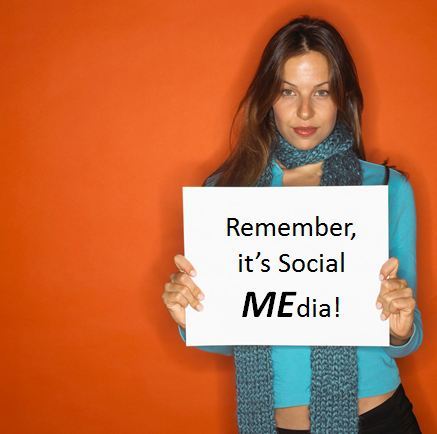 Now that it's time to sell your book, it's time to embrace your inner whore
Now that it's time to sell your book, it's time to embrace your inner whoreYou have one last task to do in this final week on month 2: plan out blogs. You need to create an author Q&A for this book and yourself. At this time, simply write the questions. Some good questions are:
• Who are your greatest literary influences?• What led you to writing this book?• What do you love most about your protagonist(s)?• What do you love most about your antagonist(s)?• Are you bringing anything new to your genre? If so, what?• Did any books/movies/TV shows inspire any part of the book? If so, what are your influences?• If you could write an episode of a popular TV show or an issue of a popular comic book, what would it be and what would the plot arcs be?
Now we come to step 3, month 1. There will be good and evil marketing here, both white hat and black hat SEO (honest and direct metadata for searches as well as slightly deceptive).
For the white hat: calculate how many questions you have, and divide them equally over days in the countdown to publishing. Space them out equally, and answer the questions in your blog. Be sure to post the link to all social media.
At the same time, by now you should have an excerpt chosen. Your publisher may choose one or you choose your own. Make sure to pick a long one that represents all protagonists, mentions/appearances of the antagonist(s), give the reader a taste of the general arc (mystery, adventure, romance, coming-of-age, etc) and ends with some kind of cliffhanger.
In the first week of month 1 I want you to place the long excerpt on your book page. Promote the hell out of it. But also keep a shorter version, maybe the best 3-4 paragraphs of the longer excerpt. In week 2 you will feature that in your blog, create it as a note on Facebook.
Also in this first week, I want you to start reaching out to other bloggers. The lesson after next we’ll go over this in detail as doing actual blog tours is best after publishing. But for now, gather your numbers. How many hits do you get? How many are repeats and unique? Have that info and the focus of your blog. Now reach out to other bloggers, fellow authors, reviewers, anyone similar. I want you to contact them via email and write a letter that simply tells them how much you like their blog (read it and give lavish and honest praise). Ask them about some interest they express on their blog or how they got into it. be specific and invite a response!
Once they respond, keep the conversation going. In your reply to their reply, ask them about blog tours, if they have toured, hosted, what their experience has been. If they reply and either directly ask to tour on your blog or host you, or indicate they might be interested, politely inquire if you may exchange blogs for a day and highlight your numbers and the exposure they can get.
While that is going on, in weeks 2-3 highlight subjects in your blog that are obvious interests of your fellow bloggers. Promote the hell out of each entry. In these weeks you’re pulling away from your book and once again attracting new readers who will find your website and your book.
In the final week of white hat, week 4 of month 1, begin a countdown. Create a list of factoids and your favorite lines. Release them on social media with a countdown to publication. No more than three times this week include the link to either the publisher’s site or the book page (for Indie authors) that should have a list of places to buy (no links yet). If you have a preorder option going (Amazon allows for this) use that link at least twice.

Now we turn to black hat for month 1. You’re going to do this as often as possible over the month. Start with making a list of your similar authors, similar books, and metadata terms for your book. Google them all. Any blog, review website, or seller that mentions them is your target, and you need to sign up under a different name on there. Choose a screen name and an email that does not have your legal or author name connected to it.
Once you are signed up, comment and review HONESTLY on the work or author (make sure you read anything you’re commenting on), and then mention your name and website, or claim to have read your upcoming book and link to it and discuss how it is similar or superior. Try to do this three times a week over the next four weeks.
One final note in pre-release marketing: for those of you on a six month plan, for months 6-4 I want you to work diligently on increasing traffic to your website, readers to your free writing, followers/friends on social media, and establishing friendships with other bloggers.
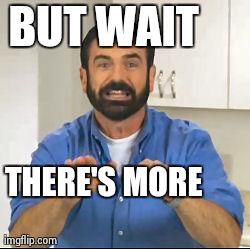
Now we move to a basic timeline for marketing via social media once you have released your book. Getting reviews, blog tours, and personal appearances will all be covered separately, so we are going to focus solely on social media now.
The day of release I want you to send only two tweets/FB posts/Google+ posts: if you have reviews, the first post will be a link to your book on Amazon, the biggest seller. The second, send an hour later, will be a link to the review. If you do not have a review, do you have it as an eBook and paperback? If so, those are your two posts (linking to where both versions appear for sale on the top seller). Just one format? Link to your top two sellers (typically Amazon, and either Smashwords or your publisher’s site).
Also on day one, get your book listed on Goodreads! Be sure to link to that in the coming days. It’s very easy once you have an account, just make sure to have the links to it and a ISBN. You can either go through the process yourself to add it, or provide the info in the forum for librarians who add books and ask someone there to do it for you.
Next, every day for two weeks I want you to have something to say: a new blog post, a new quote, a new review, a new factoid, a new sales link, news on Overdrive or library publishing, or news of release in another country. Every day for weeks 1-2 put something out.
For week 3, begin the blog tours. Don’t have a blog tour? Then it’s time to daily advertise a giveaway or contest. This will be covered in a future lesson.
Week 4 is time to announce any awards or nominations. None yet? Wait until they come. None at all, or none yet? Then use this week to highlight other awards for your free writing. None of those? Find small contests to enter on the web, craft solid entries, and publicize your entries and politely ask for votes.
After week 4 you need to slow the mentions of the book. Keep it to once a week in month 2, and after that rarely. You need to return to your blog and focus on those entries that get readers. Focus on free writing (if you still do that) or create free short stories for your website. Promote those!
 Almost...there...
Almost...there...This is about the time you will start the personal appearances, which we will get to after discussing blog tours and giveaways. Now that you know this all, please make your plan, and never forget: work to attract an audience, without an audience social marketing is meaningless.
Good luck, and I’ll see you back here to cover the art of blog tours and giveaways in depth.
Published on May 22, 2015 12:28
December 7, 2012
New Book Wolf Tales Volume I due out 12/12/12
I love to read just about any genre, and as such my writing covers a lot of ground.
After my debut novel Case of the Missing Millionaire, a mystery novel, I've worked on a collection of erotic romance stories with a paranormal bent.
Wolf Tales Volume I is coming out 12/12/12. The official description:
Six stories of erotic romance tell the tales of wild, irresistible men and the women who come to love them.
“The Claiming” introduces us to werewolf pack Beta Shaylee. When her Alpha sends her to meet a human Shaylee finds herself falling for the human, but what secret does Kyle hold that will change the wolves’ lives forever?
“The Beginning” shows us the origin of all werewolves when a simple hunter Jon is changed forever by the exotic Fatik.
“The Legacy” brings us the next generation of wolves in the tale of Lars and Alexia, destined to meet by a legacy forever binding their parents.
“The Curse” tells of the darkest hour of wolf history when Jon touches true love in a single moment with Duana.
“The Magic” is the story of lost lovers Elizabeth and Koray, brought together after centuries when a mad killer begins stalking the wolves.
“The Lost” illustrates life for non-dominant pack wolves as new wolf Alejandro chases Omega wolf Valentina around the world on a desperate manhunt for the greatest threat the wolves may ever face.
I've really enjoyed writing these stories, and three of them were previously published online. Fully edited and expanded, they are joined by three brand new never-before-seen stories and the book comes in at about 120,000 words.
For a free preview, please visit http://noraquick.yolasite.com/wolf-ta...
I hope you enjoy it!
After my debut novel Case of the Missing Millionaire, a mystery novel, I've worked on a collection of erotic romance stories with a paranormal bent.
Wolf Tales Volume I is coming out 12/12/12. The official description:
Six stories of erotic romance tell the tales of wild, irresistible men and the women who come to love them.
“The Claiming” introduces us to werewolf pack Beta Shaylee. When her Alpha sends her to meet a human Shaylee finds herself falling for the human, but what secret does Kyle hold that will change the wolves’ lives forever?
“The Beginning” shows us the origin of all werewolves when a simple hunter Jon is changed forever by the exotic Fatik.
“The Legacy” brings us the next generation of wolves in the tale of Lars and Alexia, destined to meet by a legacy forever binding their parents.
“The Curse” tells of the darkest hour of wolf history when Jon touches true love in a single moment with Duana.
“The Magic” is the story of lost lovers Elizabeth and Koray, brought together after centuries when a mad killer begins stalking the wolves.
“The Lost” illustrates life for non-dominant pack wolves as new wolf Alejandro chases Omega wolf Valentina around the world on a desperate manhunt for the greatest threat the wolves may ever face.
I've really enjoyed writing these stories, and three of them were previously published online. Fully edited and expanded, they are joined by three brand new never-before-seen stories and the book comes in at about 120,000 words.
For a free preview, please visit http://noraquick.yolasite.com/wolf-ta...
I hope you enjoy it!
Published on December 07, 2012 17:01
Nora Quick Book Updates
This blog features some posts from my official blog at
NoraQuick.com
NoraQuick.com
- Nora Quick's profile
- 2 followers



